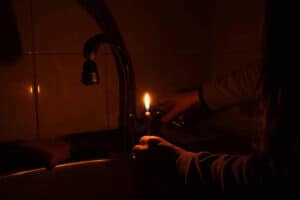Will challenge Nersa’s approval of additional licences in court, saying the regulator is breaching its own rules.

A day after energy regulator Nersa approved four electricity trading licences, Eskom announced on Wednesday night that it will challenge the decision in the high court.
Brian Day, chair of the South African Independent Power Producers Association (Saippa), considers this “a regressive step and against the excellent progress being made in reforms”.
Moneyweb reported that Nersa approved the trading licences of Africa GreenCo, Discovery Green, Green Electron Market (GEM) and CBI Electric Apollo.
This brought the number of licensed traders to 10, including Eskom’s own National Transmission Company of South Africa (NTCSA).
Eskom said in a statement it will take Nersa’s decision on review in the high court.
ALSO READ: Nersa approves cross-border electricity trading
Eskom’s objection
It objects to Nersa allowing more than one licensee to provide electricity in the same area.
“The trading licences were approved without the necessary trading rules for the industry being developed,” Eskom says and points out that the regulator members acknowledged this during their deliberations.
Eskom says this infringes upon and breaches Nersa’s own rules and the licences issued to Eskom by Nersa.
“Eskom disagrees with this decision and has instructed its attorneys to initiate legal proceedings in the High Court.”
Moneyweb reported that the regulator indeed decided during the same meeting to develop a framework and rules for trading and for cross-border trading to clarify the applicable rules.
ALSO READ: SA’s first commercial IPP wind farm starts delivering – to Sasol
Encouraging competition
Nersa full-time regulator member for electricity, Nhlanhla Gumede, said during the regulator meeting that there is no limit to the number of traders allowed to operate in a distribution area. In fact, trading licences apply nationally and are not limited to a single distribution area.
He said Nersa must encourage competition in the electricity supply market.
He said Nersa does not grant distribution licences but licences to operate distribution networks – the wires. According to Gumede, these licences exclude trading. Only one such licensee is permitted in an area to prevent “getting the wires crossed” and creating health and safety risks.
ALSO READ: Grid storage is the missing link in SA’s electricity crisis
Utility denies anti-competitive behaviour
Eskom said that, like all other participants in the electricity industry, it operates based on established rules and subscribes to a rule-based transition.
“However, this adherence to the rules has been misinterpreted as anti-competitive behaviour, which Eskom firmly denies.
“Eskom remains committed to accelerating the reform of the rules to enable a competitive energy market,” it said.
“As presented during the public hearing, Eskom will collaborate with various stakeholders to ensure that a competitive market is developed through a consultative legal framework.
“Eskom advocates for a dynamic electricity market that ensures energy security, access and affordability, fosters growth, and delivers long-term benefits for South Africa and sub-Saharan Africa.”
During a public hearing regarding the licence applications in July, Eskom shocked the renewable energy industry when it objected to the granting of the licences.
A question was asked why the utility was quiet about earlier similar applications.
This article was republished from Moneyweb. Read the original here.
Support Local Journalism
Add The Citizen as a Preferred Source on Google and follow us on Google News to see more of our trusted reporting in Google News and Top Stories.






